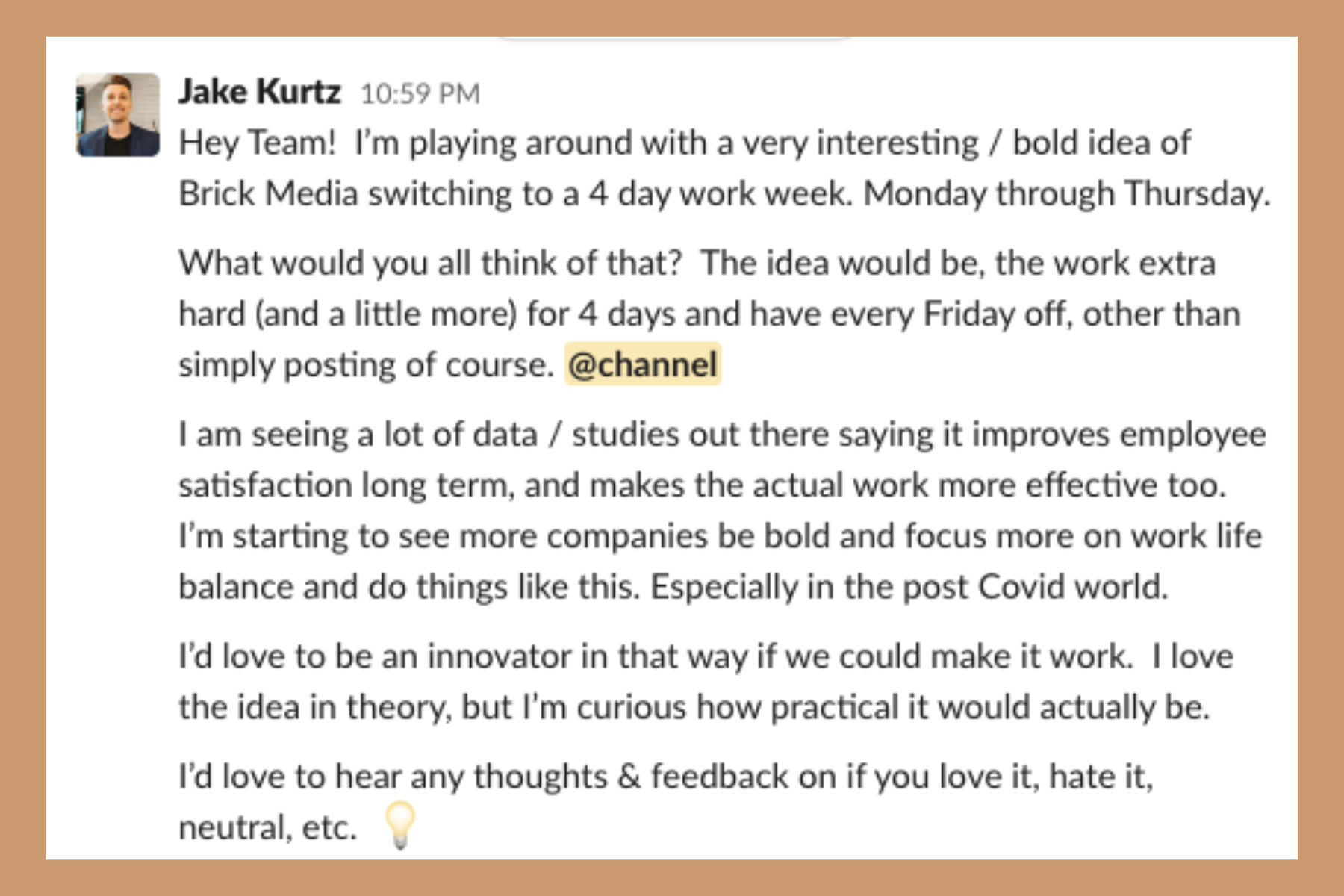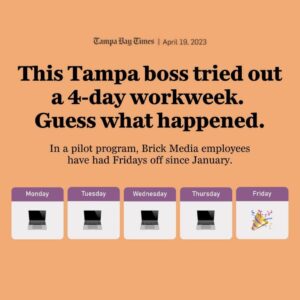We think so. There are other industries where switching to a 4 day work week would be much more challenging, such as a restaurant. A lot of social media work can be handled remotely, and social media is also one of those “always-on” things that never truly shuts off.
There are always client needs at odd times, even weekends, such as: Posting a pre-planned piece of content to social media, writing a quick caption, replying to a comment, or answering a message. We are already accustomed to handling these quick needs, and our employees go into the job knowing these requests come up and must be handled. So whether we have a 4 day or 5 day business week, the main difference is just the “bulk” of the work gets done in 4 days instead of 5.
The mindset shift is: Yes, we still handle small client needs at any time of the week, but Friday is no longer a business day for us. So no meetings, content shoots, coming into the office, or handling your larger work tasks.

